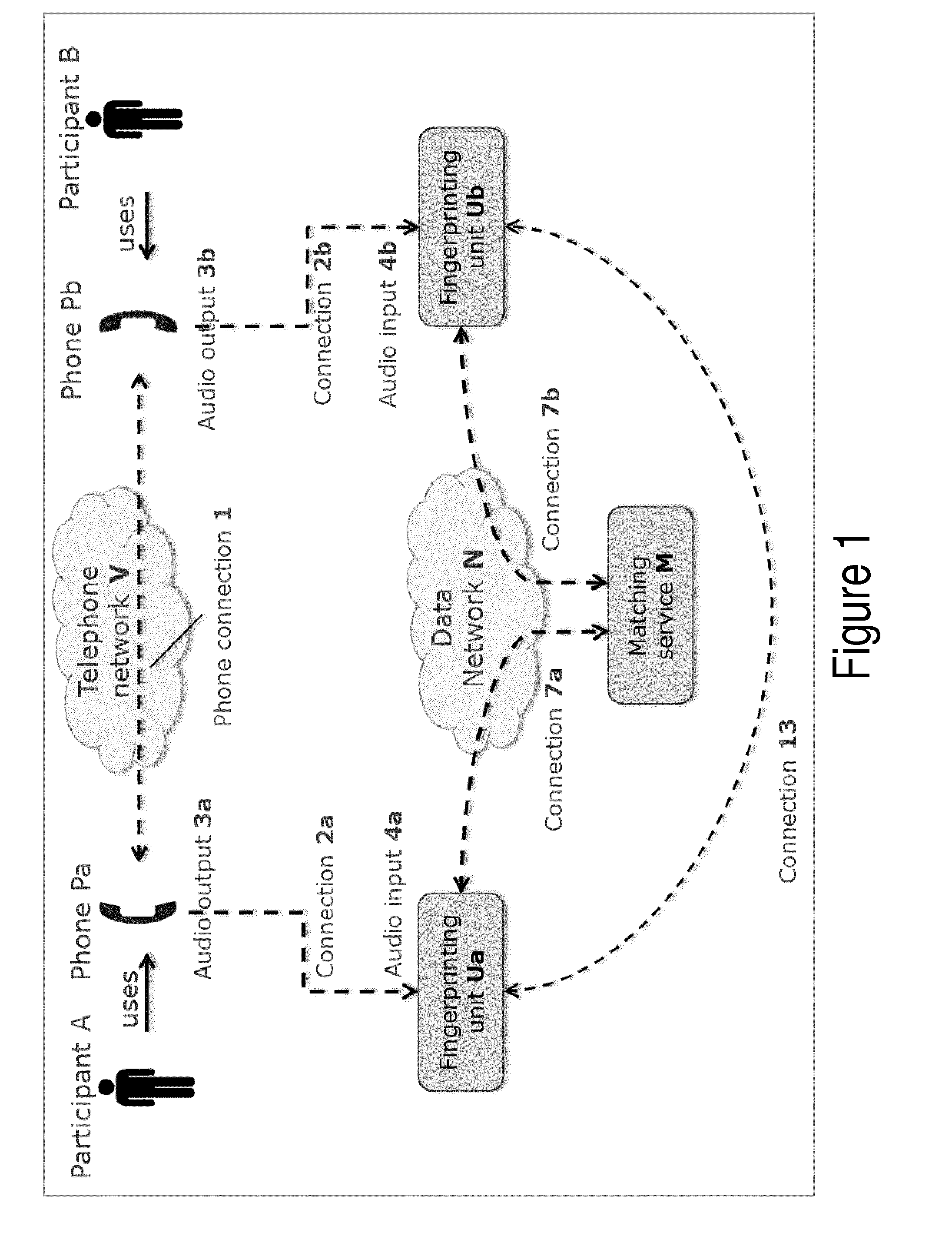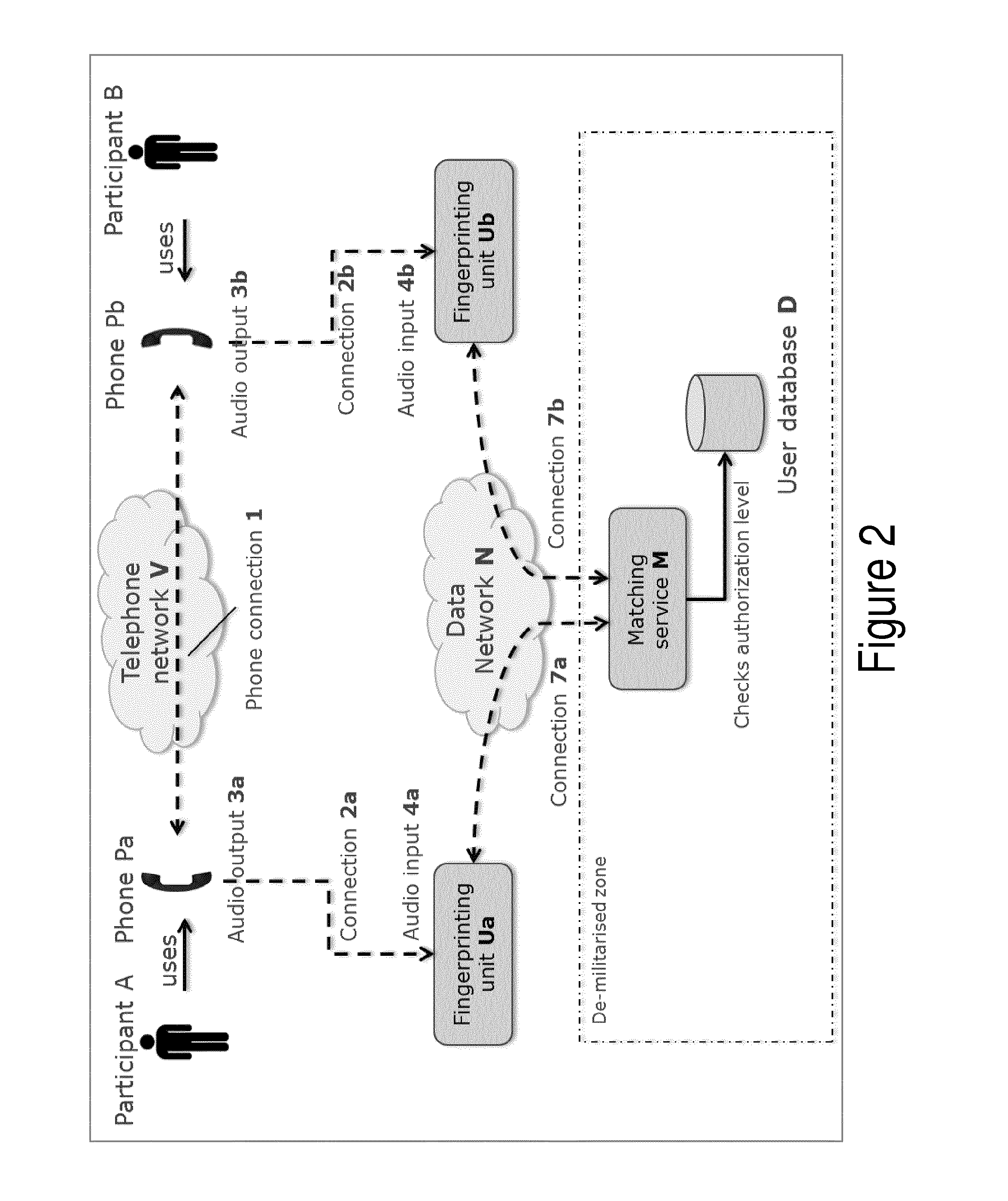Ad hoc one-time pairing of remote devices using online audio fingerprinting
a remote device and audio fingerprinting technology, applied in the field of painting and authorising devices, can solve the problems of connectivity issue, authentication problem, cumbersome communication channel over an insecure computer data network, etc., and achieve the effect of convenient use and easy protection
- Summary
- Abstract
- Description
- Claims
- Application Information
AI Technical Summary
Benefits of technology
Problems solved by technology
Method used
Image
Examples
Embodiment Construction
A) Definitions
[0054]For the sake of clarity and completeness, we make the following definitions that are used throughout this document:[0055](Def A) A ‘phone’: (Pa, Pb) is any kind of telecommunication function or device or software application supporting a human voice audio connection with users that are not in the same vicinity so that audio signals can be heard directly by the users. It can be a conventional plain old telephone, or an IP (internet protocol) phone, or a mobile phone, or any device or system to make phone or video conference calls, or any software application that captures the audio from a microphone, samples it, converts it to a signal, and transmits that signal over a telecommunication network. The phone may be a conventional phone as used for many decades to support voice communication over a network, the phone comprising a transmitter and receiver of human voice audio signals travelling over the network as well as a microphone and loud speaker. The phone may ho...
PUM
 Login to View More
Login to View More Abstract
Description
Claims
Application Information
 Login to View More
Login to View More - R&D
- Intellectual Property
- Life Sciences
- Materials
- Tech Scout
- Unparalleled Data Quality
- Higher Quality Content
- 60% Fewer Hallucinations
Browse by: Latest US Patents, China's latest patents, Technical Efficacy Thesaurus, Application Domain, Technology Topic, Popular Technical Reports.
© 2025 PatSnap. All rights reserved.Legal|Privacy policy|Modern Slavery Act Transparency Statement|Sitemap|About US| Contact US: help@patsnap.com



